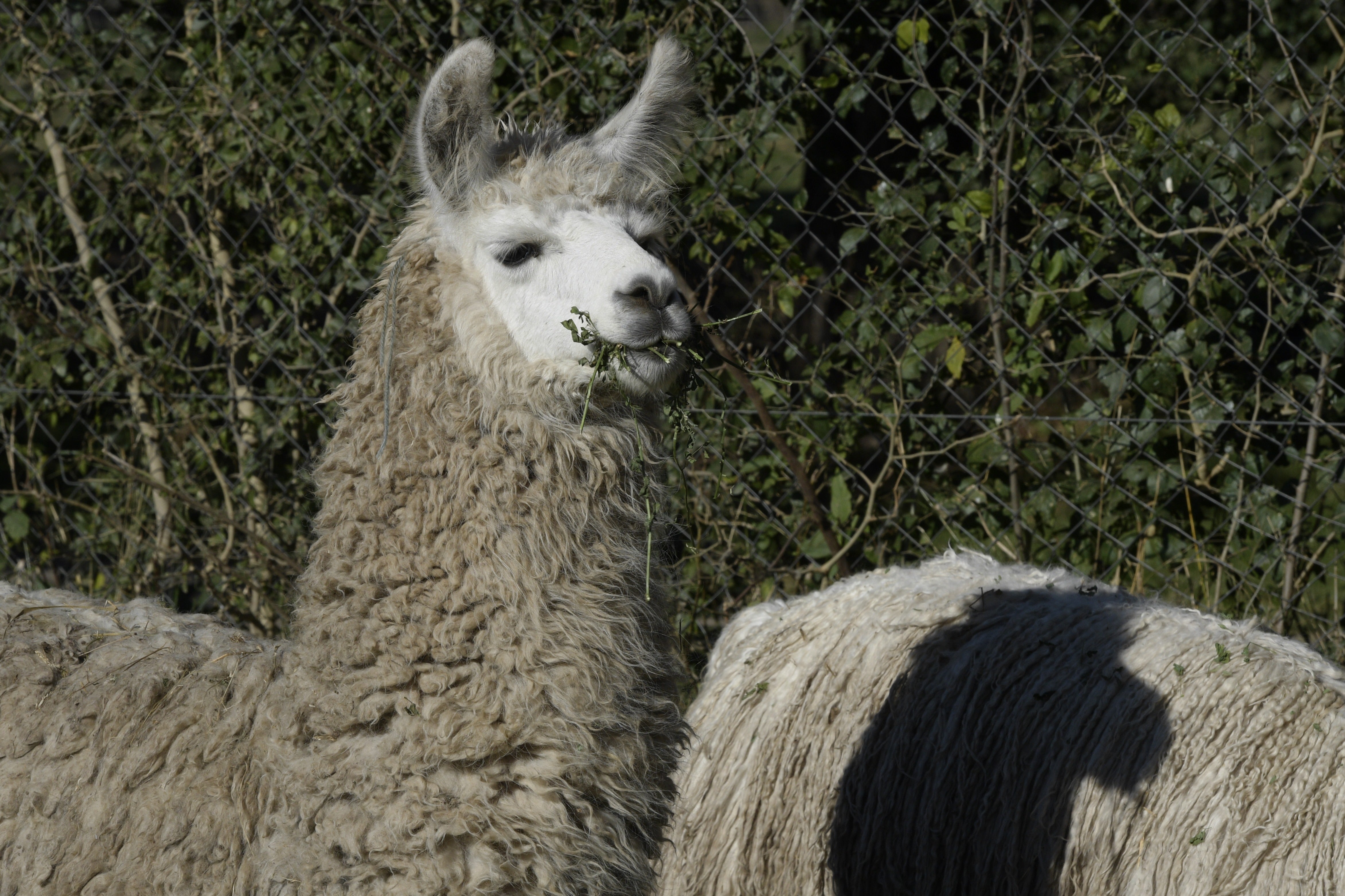Your support helps us to tell the story
From reproductive rights to climate change to Big Tech, The Independent is on the ground when the story is developing. Whether it’s investigating the financials of Elon Musk’s pro-Trump PAC or producing our latest documentary, ‘The A Word’, which shines a light on the American women fighting for reproductive rights, we know how important it is to parse out the facts from the messaging.
At such a critical moment in US history, we need reporters on the ground. Your donation allows us to keep sending journalists to speak to both sides of the story.
The Independent is trusted by Americans across the entire political spectrum. And unlike many other quality news outlets, we choose not to lock Americans out of our reporting and analysis with paywalls. We believe quality journalism should be available to everyone, paid for by those who can afford it.
Your support makes all the difference.Read more
Llamas – likely without red pajamas – may hold the key to treating schizophrenia.
The serious brain disorder causes people to interpret reality abnormally, and affects approximately 3.7 million U.S. adults between the ages of 18 to 65 years old, according to the nonprofit RTI International.
But the domesticated South American woolly animal might be be able to help. French researchers said this week that they had used llama antibodies, or proteins that help to protect the immune system, to design a tiny fragment of an antibody known as a “nanobody” that will trigger a neurotransmitter in the brain involved in regulating neural activity.
Neurotransmitters are chemical molecules that carry messages or signals from one nerve cell to the next target cell, according to the Cleveland Clinic.

open image in gallery
French researchers have used antibodies in llamas to develop a possible treatment for the effects of schizophrenia. The serious brain disorder impacts millions of Americans (AFP via Getty Images)
No llamas were harmed in the study and researchers can identify nanobodies in a petri dish. In the past, llama antibodies have also proven effective in fighting Covid and other “SARS-like” viruses.
When scientists at the Institute of Functional Genomics injected the molecule into the veins or the muscles, it was able to break the blood-brain barrier and effectively reach brain receptors. The barrier is a a tightly locked layer of cells that defend your brain from harmful substances.
Studying the impact of the nanobodies in two tests using mice, the researchers found that they corrected cognitive deficits that were observed.
There was an improvement of cognitive function with just one shot, and a prolonged effect over one week.
“In humans obviously we don’t know [yet], but in mice yes, it is sufficient to treat most deficits of schizophrenia,” molecular biologist Jean-Philippe Pin told Newsweek..
He was a co-author of the research which was published in the journal Nature.
Pin said that medications currently given to schizophrenia patients “treat the symptoms well, but less the cognitive deficits.”

open image in gallery
Llama antibodies have previously been used to fight Covid. Llamas, camels, and alpacas have unique immune systems (AFP via Getty Images)
The cause of the chronic condition remains unknown, but the World Health Organization says it is thought that an interaction between genes and a range of environmental factors may be the reason. The exact prevalence of schizophrenia is difficult to measure. Some have tied cases in Canada to cannabis use.
Although schizophrenia can occur at any age, people are typically diagnosed between the ages of 16 and 30. Symptoms vary from person to person.
There is no cure, but it can be treated through antipsychotic medications, talk therapy, and self-management strategies, the National Alliance on Mental Illness says.
The study’s authors hope to add this strategy to the list.
“This research confirms the potential of nanobodies as a new therapeutic strategy for acting on the brain, with their use eventually being broadened to include the treatment of other neurological illnesses,” the institute said in a statement.

